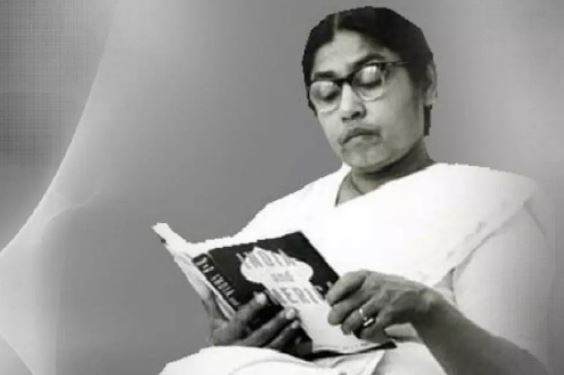Note4Students
From UPSC perspective, the following things are important :
Prelims level: Sucheta Kripalani

Why in the News?
June 25 is the birth anniversary of “Sucheta Kripalani”, India’s first woman Chief Minister.
Who was Sucheta Kripalani?
- Sucheta Kripalani was born on June 25, 1908, in Ambala, Punjab. Daughter of S. N. Majumdar, a government surgeon. She studied at Indraprastha College for Women and St. Stephen’s College, University of Delhi.
- She married J. B. Kripalani, a former Congress president and Gandhian, in April 1936 against familial and Mahatma Gandhi’s wishes.
Political Journey and Chief Ministership
- Early Career: Joined BHU to teach Constitutional History in 1929, participated in Satyagraha, and was imprisoned in 1940.
- Congress Role: Organized the foreign affairs wing of AICC and later founded the All India Mahila Congress.
- She won by a margin of 99 votes over Kamalapati Tripathi and was sworn in as CM on October 2, 1963.
Contributions and Achievements
- Educational Reforms: Waived school fees for girls up to Class 10 from January 1965. Established Meerut University and Kanpur University.
- Social Reforms: Increased reservation for SCs in government jobs to 24% in Group C and 45% in Group D until the 18% target was achieved.
- Infrastructure Developments: Established a Sainik School in Ghorakhal, a new medical college in Meerut, and the UP Awas Vikas Parishad. She created the post of agriculture production commissioner.
- Crime Control: Neutralized many dacoits in the Chambal Valley with the help of the Police Radio Unit.
- Anti-Corruption Stance: Emphasized the need to tackle growing corruption in public services, supporting the Union government’s initiative to appoint a vigilance commission.
- Multifaceted Contributions: Involved in relief activities for the 1934 Bihar earthquake, Noakhali riots, Tibetan refugee rehabilitation, and the Indo-Pak War of 1971.
- Criticism and Response: Faced criticism for being influenced by English, despite being a staunch supporter of Hindi. Advocated for creating an atmosphere for Hindi in governance.
Later Life and Legacy
- Post-CM Career: Served as Lok Sabha MP until 1971.
- Impact: Her tenure as CM and various social contributions left a lasting impact on Indian politics and society, especially in terms of women’s leadership and social reforms.
PYQ:[2011] With reference to the Indian freedom struggle, Usha Mehta is well-known for: (a) Running the secret Congress Radio in the wake of the Quit India Movement (b) Participating in the Second Round Table Conference (c) Leading a contingent of the Indian National Army (d) Assisting in the formation of Interim Government under Pandit Jawaharlal Nehru |
Get an IAS/IPS ranker as your 1: 1 personal mentor for UPSC 2024

